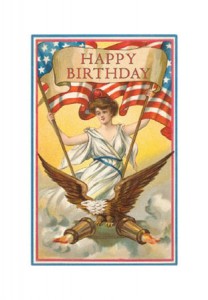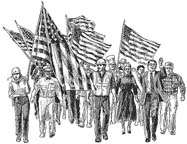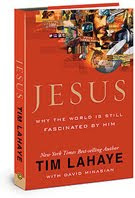 It is time for a FIRST Wild Card Tour book review! If you wish to join the FIRST blog alliance, just click the button. We are a group of reviewers who tour Christian books. A Wild Card post includes a brief bio of the author and a full chapter from each book toured. The reason it is called a FIRST Wild Card Tour is that you never know if the book will be fiction, non~fiction, for young, or for old…or for somewhere in between! Enjoy your free peek into the book!
It is time for a FIRST Wild Card Tour book review! If you wish to join the FIRST blog alliance, just click the button. We are a group of reviewers who tour Christian books. A Wild Card post includes a brief bio of the author and a full chapter from each book toured. The reason it is called a FIRST Wild Card Tour is that you never know if the book will be fiction, non~fiction, for young, or for old…or for somewhere in between! Enjoy your free peek into the book!
You never know when I might play a wild card on you!
Today’s Wild Card author is:
and the book:
Look to the East (The Great War)
Tyndale House Publishers (August 4, 2009)
ABOUT THE AUTHOR:

Maureen Lang has always had a passion for writing. She wrote her first novel longhand around the age of ten, and it was so fun she’s been writing ever since. She’s published nine novels and won several awards, including the Romance Writers of America’s Golden Heart award and the American Christian Fiction Writer’s Noble Theme award. She lives near Chicago, Illinois, with her husband and three children.
Visit the author’s website.
Product Details:
List Price: $12.99
Paperback: 368 pages
Publisher: Tyndale House Publishers (August 4, 2009)
Language: English
ISBN-10: 1414324359
ISBN-13: 978-1414324357
AND NOW…THE FIRST CHAPTER:

Briecourt, Northern France
Julitte Toussaint sucked in her breath and shut her eyes, as if by closing off her own vision she, too, might become invisible. Stuck high above the ground where someone so grown, just turned twenty-and-two, should never be caught, she shot a fervent prayer heavenward. Please let neither one look up!She clutched the book-sized tin to her chest and went death-still in hopes of going unnoticed.
“. . . those days may be behind us, Anton. At least for a while.” She heard his voice for the first time, the man who had come to visit the only château within walking distance of her village. The man whose blond hair had reflected the sun and nearly blinded her to the rest of his beauty. The perfect nose, the proportionate lips, the blue eyes that with one glance had taken her breath away.
Now he was near again, and her lungs froze. She feared the slightest motion might betray her.
“You’ll go back, Charles? Join this insanity, when you could follow me the other way?” She recognized Anton Mantoux’s voice without looking. He was the closest thing to aristocracy the town of Briecourt knew. Though Julitte had never spoken to him, she had heard him speak many times. Whenever the mayor called a village meeting, M. Mantoux always held the floor longest.
Charles . . . so that was his name.
“Who would have thought I had a single noble bone in my body?”
M. Mantoux snorted. “You’ll follow your foolhardy king, will you?”
“Much can be said about a man—a king, no less—who takes for himself the same risks he asks others to bear. I should never have left Belgium. I know my sister never will. How can I do less?”
“Ah, yes, your beautiful and brave little sister Isabelle . . . What is it you call her? Isa?”
“Careful with your thoughts, Anton,” said the man—Charles—whose voice was every bit as lovely as his face. “She’s little more than a child.”
“A child, but not much longer. And then you may have me in the family!”
Feeling a cramp in her leg, Julitte wanted nothing more than to climb down the tree and scurry away. Let them move on!she silently pleaded to God. Send a wind to blow them on their way before—
As if in instant answer to her prayer, a gust tore through the thick leaf cover of the beech tree in which she hid. In horror she watched the tin, dampened by her perspiring hands, slip from her grasp and take the path designed by gravity. She heard a dull thud as it bounced off the perfect forehead of the taller of the two men below, grazing the blond hair that so intrigued her.
A moment later both men looked up, and she might have thought their surprised faces funny had she planned the episode and been a bit younger to get away with such a prank.
“I thank you for the answered prayer of the wind, Lord,” she whispered in annoyed submission, “but not for the result, as You well know.”
“You there.” M. Mantoux’s voice was as commanding as ever, and it set her heart to fear-filled pounding. “Come down at once.”
Giving up any hope of dignity, Julitte shook away the cramp in one leg, then shimmied back along the thick branch until reaching the trunk that was somewhat wider than the span of her arms and legs. Her foot found the knothole she knew so well, and in a moment she stood on the ground, pulling at her skirt to cover pantaloons and the single petticoat she owned, a hand-me-down from her adoptive mother. From the corner of her eye she saw the towering blond man bending to retrieve her tin, a look of curiosity on his handsome face.
M. Mantoux stepped in front of Julitte. “What were you doing up there, girl? Who—”
Enlightenment reached his eyes before his voice faded away. Of course he knew who she was—everyone in and around her village knew she was the étrangère, the outsider. Not only because at least half of the village wouldn’t have welcomed an adopted child of Narcisse Toussaint, but because she had been born far away on the Island of Lepers, off the coast of Greece. Though Julitte had lived among the French villagers for nearly fifteen years, some still whispered of her heritage to this day, to passersby or children too young to already know.
“Come here, Julitte Toussaint.” He pointed to a spot a few feet away. “Stand there, not too close.”
M. Mantoux had an angry look about him, but she knew he always seemed that way from the curve of his nostrils to the arch in his brow. Even when he laughed—and she had seen him do that once—his face held the edge of ire whether with intent or not.
Intent was there now.
She obeyed his order and stopped where he’d told her, at the same time reaching for her property. The man holding the tin started to extend the item but took a moment to study it before completing the motion. His thumb traced the amateurishly tooled design, fashioned by her adoptive brother. Then he shook it and the items inside rattled. But he did not open it, for which she was silently grateful.
Both had to bend forward to pass the tin between them. Heplaced it, about the size of one of his hands, into both of hers.
“What were you doing on my property and what have you there?” M. Mantoux’s intimidating manner was the same he’d used when her cousin had lost one of his pigs and found it burrowing holes in the Mantoux Château garden. Only behind his intimidation today was a tone familiarly aimed her way—distaste mixed with a hint of the fear common to those who knew only her background and not her. “And why did you accost my guest?”
Julitte wanted to raise her gaze to M. Mantoux, to stare him down as she stared down her brother when he teased her the way brothers could. But M. Mantoux was not her brother. And standing in the handsome stranger’s shadow had stolen her courage.
Gazing downward, she mustered a respectful tone. “I was in the tree to retrieve the tin and decided to stay there until you passed by so to escape notice. The breeze whipped the box from my hold.” A quick glance at the blond cavalier revealed that his eyes stayed on her. Perhaps he was not so gallant, after all. What sort of man stared so boldly? Despite such thoughts, she knew what she must do. Keeping her gaze downcast, she turned to the handsome man she’d unwittingly troubled. “I offer you all my excuses, sir.”
“Accepted.”
The single word was issued softly and with a smile. Julitte let her gaze linger, welcoming his ready forgiveness. Her rapidly beating heart took a new direction.
“My friend is more magnanimous than needs be,” said M. Mantoux. “You are aware, Julitte, that this tree is on my property? If you fell and hurt yourself what should I have done?”
“I expect it would have been entirely my own fault, monsieur, and I would blame neither you nor the tree.”
“In any case, you’re far too old to be climbing like a waif. Narcisse shall hear of this.”
“I’m afraid he sent me on my mission before he left once again for the sea, Monsieur Mantoux.” She held up the tin. “This is my brother’s, you see, and I was told to fetch it and tell him to find another favorite spot to whittle. Closer to home.” She didn’t mention she had been the one to introduce her brother to this particularly dense and knotty tree.
The stranger—Charles—patted M. Mantoux’s shoulder. “There you see, Anton, it’s all perfectly understandable. Why berate the girl?”
Girl. But then, what else should he have called someone dallying about in a tree? Suddenly a vision of having met him under other circumstances filled her head, of her offering a brief and graceful curtsey and extending her hand for him to kiss. They would be formally introduced and have an intelligent conversation, about books and history and faraway places. Oh . . .
Instead M. Mantoux dismissed her as the peasant she was, unworthy to be presented to any guest of his noble household. And the two were already walking away.
#
Charles Lassone glanced back at the girl from the tree, unable to resist one last look. He could tell from her dress—clean despite her foray up to the branches—that she was a peasant from the village. For a moment, he wished circumstances were different. She was lovely, peasant or not. Her hair had shades of red and gold softened by strands of bronze . . . like a sunset. And her eyes were as dark as a black ocean reflecting the night sky. He’d caught himself staring but somehow couldn’t right his manners even when she’d noted the lapse.
Charles shook the reflection away, tagging such pointless thoughts as a premature product of war. He hadn’t even signed up! Yet. Now was most definitely notthe time to become entangled with a women, peasant or otherwise.
He was leaving France, returning to Belgium and to the side of King Albert. Rumor had it the king was leading his troops to battle. Charles just hoped he wasn’t too late.
#
Julitte walked the half-mile to the village, growing thirsty in the heat. Soon the cobbled square in the center of town came into view. Beneath the shadow of the church’s tall brick bell tower sat one of the two pubs in town. It ceased to be a stark contrast to the place of worship since the proprietor had at the behest of his wife stopped partaking in spirits—and consequently stopped serving them. He’d even rolled the piano out of his door and into the church, since so many of the songs sung in the pub no longer seemed the same without the local brew or some other liquor in hand.
Those in the de Colville family had protested the loudest since it was one less place their spirits were served, the one area to which they did not have to smuggle their goods.
Julitte was surprised to see a cluster of women and children gathered in the square. There were a limited number of huddles Julitte could join, even among women. She was restricted to those of the same Toussaint name or to those linked in some way. Even among Toussaints, she had to be careful.
Toussaint or de Colville . . . to be born in Briecourt was to be born into loyalty to one or the other. It was a simple fact no one questioned.
Ignoring her parched throat, Julitte circled the square until she found Oriane Bouget, Ori as she was called, who was with her grandmother Didi.
“What’s happened?”
“There . . . see for yourself.” Ori pointed with her chin to yet another bunch off to the side. There were the men of the village, near the town hall. The grand two-story brick structure would have fit any fine town, but here it sat in Briecourt, as out of place as a gem among pebbles. It housed the mayor’s office and garde civiquesquarters, the jail and the postal services all in one. A table had been brought outside and a man sat behind it taking down names, then sending the men one by one into the building.
“What is it?”
“They say we are at war,” Grandmother Didi said in her loud way, “and all the men must go and fight.” The tone of her voice accommodated her own lack of hearing, but just now it had quivered.
“War! With who? Not the English again?” Her father had told her about the many wars between the French and the English.
“No, the Germans, so they say.”
“Again?” It wasn’t all that long ago that France had feuded with their neighbors to the east, too. Julitte stared at the line of men, all of whom she knew. Including her adoptive brother.
“Pierre!” She left Ori’s side to rush to his.
“Have you heard the news?” A wide smile brightened his youthful, handsome face. Brown eyes as sweet and guileless as anyone as naïve as he, and here he was lining up . . . for war?
“What are you doing? Papa only left two days ago. Without his permission I don’t think—”
Whether it was her words or alarmed tone, Julitte caught the attention of men on both sides of Pierre. She had sat in schoolrooms with many of those in this line and knew the majority were best fit for harvesting—the sum of most dreams, the same as their fathers before them.
“Leave him be, woman!” Though his words were firm, the face of her long-ago classmate was lit with exhilaration, as if it were a holiday when anyone could be forgiven anything. “We’re off to be heroes the likes of which our town has never seen. Soon this very square will be filled with statues to our bravery.”
She lifted one brow. “Statues or bodies?”
“It would be a privilege to die for our country!” Pierre joined with his friend to recite the words, making Julitte believe they repeated whatever pronouncement they might have heard to form this line to begin with.
“Julitte,” Pierre whispered, pulling her aside. “I must go, don’t you see? Every man between the age seventeen and thirty is being called to service. I have no choice. And I wantto go.”
“Seventeen—but you’re not seventeen until—”
“Tomorrow is close enough, so he said I must go.”
Julitte found no words to counter such incredible information. How had this happened? Briecourt minded its own business; why couldn’t the rest of the world do the same?
“I will go, Julitte.” His words, soft but firm, left no room for doubt or argument.
She shook her head, wishing words to convince him otherwise would fall into place. None did. Instead of speaking, she handed him the tin she’d retrieved, full of his favorite woodcarvings that were little more than toys. How could it be that he should be signing up for war when that box proved he was still a child? Such thingswere not the stuff of soldiers.
Turning away, she headed to her cottage, ignoring Ori’s call. No one was home, with Narcisse at sea and her adoptive mother long since gone to heaven. But Julitte could go nowhere else just now. Her prayer corner was here. Her spirit, weighted with fear for her brother and all those in line, longed for the reassurance of knowing none were outside the boundaries of God’s loving concern.
She needed to pray.
#
“Arrête! Arrêterez votre véhicule ici.”
The French poilupounded the butt of his rifle on the pristine hood of Charles Lassone’s Peugeot. He had enough sense to hide his annoyance with the soldiers who’d set up this roadblock—that seemed the wisest choice when facing the barrel of a rifle. The blue and red clad officer spoke rapid French, motioning at the same time for Charles to exit the vehicle.
He did so, skyscraping above the agitated soldier who couldn’t have been more than five feet tall. Another soldier, this one taller but still not equal to Charles’s six foot one, came to stand before him, both of them waving their rifles in Charles’s direction.
“What is this about?” Charles inquired in perfect French. Though his mother was American, his father was Belgian and a Walloon at that, so Charles had grown up speaking at least as much French as English.
“We regret to inform you, monsieur, that you may go no farther in your motorcar. You may take your personal belongings, and then take yourself elsewhere.”
Rifles or not, Charles lost his hold on hiding annoyance. “What do you mean, take myself elsewhere? With my motor, of course?”
“No, monsieur. Without your motor.”
“Listen here, I have dual citizenship between Belgium and America. France has no claim to me or to my possessions.”
“Necessity outweighs all laws of any country, monsieur. Now please empty the vehicle of your belongings and then be off.”
“I will not.” Grabbing the handle of his motorcar door, Charles moved no farther until the tip of the soldier’s rifle grazed his temple.
“All motors are being requisitioned for service, monsieur. If not here, then several miles down the road, by your own Belgian government. We are now united against a common enemy, and whether you donate the motor here or there makes no difference. You see?”
Charles did not see at all. If his motor had to be requisitioned, he far preferred to surrender it to a Belgian soldier. But as one could not be found, there was no point in arguing.
He retrieved his bag and jacket from the rear seat, then watched with a heart nearly as heavy as the motor itself while yet another French poiluresumed Charles’s seat behind the wheel and drove off, the crunch of crushed stones sounding beneath the little-worn tires. No doubt the 1913 blue Peugeot would be in the hands of a French officer before nightfall.
“Can you direct me to the nearest train station?” he asked of the remaining soldiers. They had regrouped into the same circle they had been in when Charles spotted them alongside the pile of logs they’d set up as a barrier on the old Roman gravel road leading to the Belgian border.
A snicker here and there gave him little hope of the easy answer he sought. One, the man who had first pounded on the hood of the motor, faced Charles.
“A station will do you no good, monsieur. All trains between our two countries have been requisitioned. They are now used exclusively for troops.” He lifted one of his feet and tapped a dusty boot. “A hike is in store for you.” Then he laughed along with the others.
Without a word, Charles started walking. At first his steps were slow, but after a moment he picked up his pace. Maybe he should be grateful only his motorcar had been impressed into duty.












